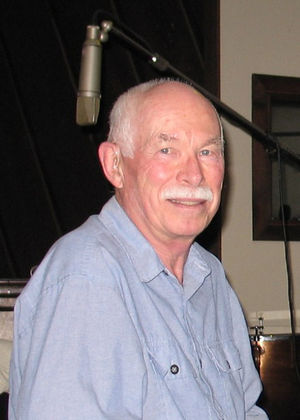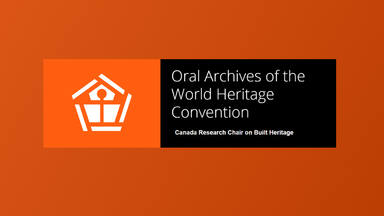
Interview
Jim Collinson
1939-2024
World Heritage Convention
After studying Agricultural Economics at the University of Manitoba, Jim Collinson completed a Master's degree in Conservation/Resource Economics at the University of Michigan.
Specializing in research and development of energy, economic and environmental strategies, he worked in the public service for nearly thirty years, first for the Government of Manitoba and then at the federal level. Since 1994, he has worked as a consultant with Arnold /Collinson Research and Consulting and has published numerous articles on energy, climate change and natural resource management.
At the head of the Canadian Parks Service (now Parks Canada) from 1985 to 1990, Jim Collinson represented Canada at the World Heritage Committee during this period. At its first Committee meeting in Paris in 1986, he was elected Chairman in the absence of a delegate who was unable to attend at the last minute and was re-elected Chairman at the next session in 1987. Three initiatives marked his chairmanship. First, he suggested that a working group explore the possibility of developing an international tentative list for cultural property through a global study. Secondly, he initiated discussions with the World Bank to ensure consultation with the Committee before funding projects likely to impact on World Heritage sites. Finally, he made a request to the Director-General of UNESCO for an increase in Secretariat resources, which ultimately led to the creation of new posts for the World Heritage Center in the late 1990s.
Interview with
Jim Collinson
12 July 2010 in Windsor, Canada
The following audio clips are from an interview with Jim Collinson by Christina Cameron the 12 July 2010 in Windsor, Canada. He explains his vision of the major objectives of the World Heritage Convention and its contribution at the international level. He also comments on issues of the size and representativeness of the World Heritage List and the political aspect of the Convention, using concrete examples that illustrate the history of this conservation tool.
- 1. The World Heritage Convention
- 1a. Involvement and role of Jim Collinson in World Heritage
- 1b. Key Objectives of the World Heritage Convention
- 1c. The World Heritage List: length, quality, representativeness
- 1d. The contribution of the Convention in the international arena
- 1e. Successes and failures of the Convention
- 2. The World Heritage Committee
- 3. Advisory bodies: the performance of IUCN, ICOMOS and ICCROM
- 4. The Secretariat of UNESCO
Oral Archives of the
World Heritage Convention
Under the leadership of the Canada Research Chair on Built Heritage at the University of Montreal, an international team of researchers conducts interviews with pioneers of World Heritage to capture memories of important moments in the history of UNESCO Convention.
Launched in 2006, this initiative is part of the UNESCO History project that celebrated the 60th anniversary of the creation of UNESCO. The Oral Archives project records the precious witness of people closely associated with the creation and implementation of the Convention. Their recollections and views have greatly enriched the book by Christina Cameron and Mechtild Rössler, Many Voices, One Vision: The Early Years of the World Heritage Convention (Ashgate/Routledge, 2013).
